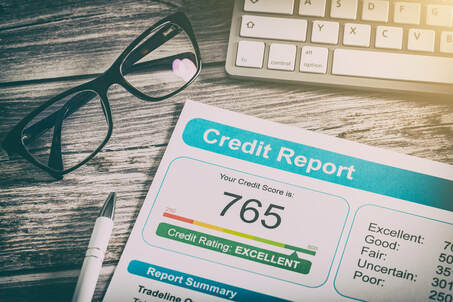 Let’s be honest, establishing good credit is probably the last thing on anyone’s mind, especially for consumers who are just reaching college age or are even still in high school. But what many younger consumers don’t understand is building and establishing a solid credit history matters more than ever in today’s world. Credit is central to reaching important financial milestones, such as buying a home or car. Credit has a large impact on the rates consumers pay as well. It is also important when renting an apartment or setting up utility bills. Don’t fall victim to paying those hefty deposits because you have no established credit. SPOILER ALERT: It is not fun. Many employers even use credit scores when deciding whether to hire job candidates. In a study done by CareerBuilder and reported by CNBC, 72 percent of employees conduct background checks, with 29 percent also checking credit reports. So when is the best time to start building credit? I am so glad you asked. A U.S. News article recommends that people start building credit at age 18. A person can’t legally contract for debt prior to the age of 18. Unfortunately, a lot of students and young adults do not realize the impact this three-digit number will have on their entire financial lives; I know I didn’t when I was 18. Starting to build credit at 18 is also beneficial simply because 15 percent of FICO credit score reports depend on the length of credit history. Lenders and employers want to see a history of managing credit responsibly. The CARD Act of 2009 made it more difficult for consumers younger than 21 years old to get a credit card in their name. An applicant younger than 21 years of age has to show proof that he or she has the financial means to handle their debt or get a parent (or spouse) to co-sign before becoming eligible to be a card-holder. In the states of Alabama and Nebraska the age of majority is 19. In Mississippi and Puerto Rico the age of majority is 21. Having higher ages of majority makes it even more difficult for those who are trying to take the steps to start building credit early. No one is perfect and mistakes happen. By starting to build credit early, consumers have a chance to make up for mistakes made, while learning how to be financially responsible. So where do you start? How do you build credit? You’re not alone in wondering where the path to a good credit score begins. A survey done in November of 2018 on credit cards found that more than 40% of college-age consumers said their parents or teachers never educated them on how credit scores are calculated or how to use a credit card responsibly. before getting one. If you are eager to start building credit and shaping your financial future, start with a checking account. Checking accounts don’t directly impact your credit score making it a good way to start creating sound financial habits. A good credit score is a byproduct of good financial habits. This also helps you avoid costly mistakes that could damage your credit. While a credit card is an obvious way to start building credit, it is important to start small. Learn financial lessons with amounts that are manageable for your budget. The key to building a good credit profile is actually quite simple: don’t take on more debt than you can support, pay your debt on time, keep unsecured balances low and continually pay them off. At ēCO Credit Union the age required for opening a credit account is 19 due to the Alabama Age of Majority. The FORWARD>>> account is available for those that are interested in establishing sound financial habits and are between the ages of 19 and 29. The FORWARD>>> Credit Card offers the following:
Want someone to come talk to your class or community group about responsibly establishing credit? Contact the ēCO Credit Union Foundation at [email protected]. Loans and Credit Cards are subject to credit approval. ēCO is federally insured by the NCUA and an Equal Housing Opportunity Lender. APR- Annual Percentage Rate
0 Comments
Leave a Reply. |


 RSS Feed
RSS Feed